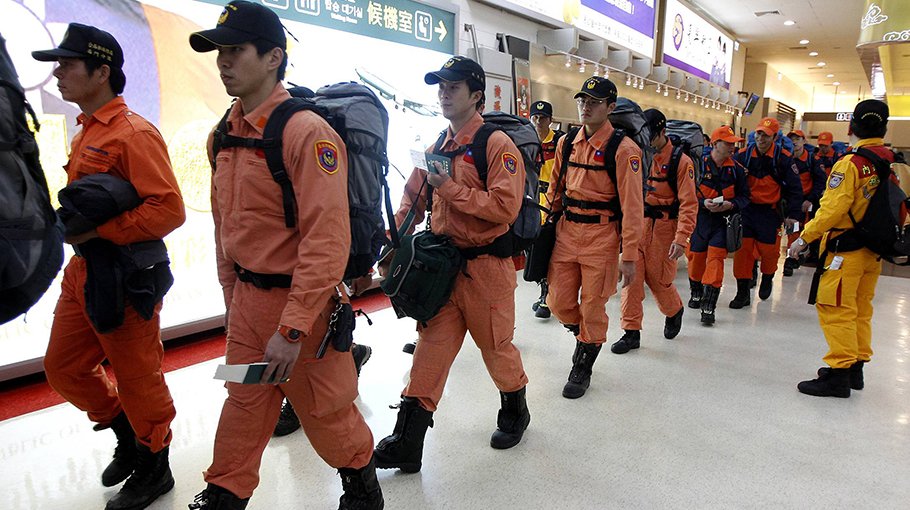History in the making: Kobe’s Japan-Taiwan Exchange Summit
This year’s conference showed just how strong support for the island is in Japan


The city of Kobe has historically had close ties with the island of Taiwan, as it did with the founding of the Republic of China through its association with Sun Yat-sen, but the relationship was deepened even further recently with the adoption of the Kobe Declaration last Friday.
The Kobe Declaration was prepared by the committee hosting the 7th Japan-Taiwan Exchange Summit in Kobe and adopted by a unanimous vote of more than 500 participants attending the annual gathering.
This year’s summit, despite the lingering effects of the various COVID-19 pandemic-induced limitations, was the largest ever, showing just how strong support for Taiwan is in Japan. Among the 510 participants were 365 representatives from 70 prefecture, city, town and village assemblies across the country, from Naha, Okinawa Prefecture, to Hokkaido’s capital, Sapporo.
The first summit was held in 2015 in Kanazawa, Ishikawa Prefecture, the second in Wakayama in 2016 and the third in the city of Kumamoto in 2017.
Readers will recall that in the previous year, 2016, Kumamoto Prefecture was struck by a series of devastating earthquakes that killed 50 people outright (and over 200 more due to “related deaths,” such as physical and mental illness). In order to support Kumamoto in its rebuilding efforts, summit participants decided to hold the event in the city.
Disaster cooperation was also an important theme of the Kobe Declaration and part of the significance of holding the event in Kobe (in addition to the long history between Taiwan and the area).
The fourth summit was held in 2018 in Kaohsiung, on Taiwan’s southwestern coast and the fifth and sixth summits took place back in Japan in the cities of Toyama and Kaga, Ishikawa Prefecture, in 2019 and 2020 respectively.
Next year’s summit is scheduled to be held in the city of Kochi. Representatives from Kochi Prefecture took the stage at the end of the event to welcome participants to next year’s gathering. Importantly, the Kochi representatives comprised a bipartisan group with every political party, including the Communist Party of Japan, being represented.
This was true of the summit as a whole. It was a truly bipartisan event. While many were conservative independents or members of the ruling Liberal Democratic Party, there were an equal number of opposition party members to include the Constitutional Democratic Party, Japan Innovation Party and Democratic Party for the People. Even the junior ruling coalition partner Komeito, known to be pro-China, was in attendance, suggesting that their local assembly members are much more attune to sentiment on the ground than their leaders back at party headquarters.
The committee, therefore, has much to be proud of: organizing the largest summit ever — and a bipartisan one at that — during the COVID-19 epidemic while facing pressure from a hostile government. Moreover, the Kobe Declaration will likely go down in history as an important turning point in Japanese-Taiwanese relations, particularly for its call for a Taiwan Relations Act for Japan (called here the Basic Law on Japan-Taiwan Relations) and ending Taiwan’s diplomatic isolation by participating in international organizations. While just one page in length, the declaration began with two very powerful paragraphs. The first one discussed the two countries’ experiences with disasters and helping one another:
“Japan and Taiwan have always stood by each other and helped one another in times of trouble During the Great Hanshin-Awaji Earthquake that struck Kobe, and the Great East Japan Earthquake, as well as the shortage of medical supplies caused by the coronavirus epidemic last year, Taiwan provided Japan with tremendous support from the public and private sectors, and Japan also provided Taiwan with a vaccine against the new coronavirus. The friendship between Japan and Taiwan has deepened with each passing crisis and difficulty, and the bond between the two countries is stronger and more unshakable than ever.”
The second paragraph emphasized some of their common goals and values: “Japan and Taiwan share the universal values of respect for peace, the rule of law, freedom and democracy and human rights, and will not tolerate any pressure on our friendly relations or any infringement on our sovereignty. We are convinced that the ‘cycle of goodwill’ through the strengthening of friendship and cooperation between Japan and Taiwan will not only benefit the national interests of Japan and Taiwan and improve the welfare of the people of both countries but will also contribute to the improvement of human welfare and world peace.”
The declaration called on the Japanese government to:
Promote exchange and cooperation between Japan and Taiwan in the fields of economy, culture, education, tourism, medical care, disaster prevention, etc. Quickly enact a Basic Law on Japan-Taiwan Relations (sort of like the Taiwan Relations Act in the United States)
Facilitate Taiwan’s participation in international organizations, international frameworks, and the United Nations system such as the World Health Organization, International Civil Aviation Organization and International Criminal Police Organization
Assist Taiwan’s efforts to join the Comprehensive and Progressive Agreement on Trans-Pacific Partnership, to which it has applied for admission
Cooperate with Taiwan to deal with the coronavirus for the betterment of international society.
The document also urged participating legislators, leagues and associations to “work actively to ensure that the bonds of friendship and goodwill between Japan and Taiwan continue forever.”
I was lucky enough to be a witness to this remarkable event and believe it will go down in history as one of the important days in the history of Japan-Taiwan relations.
Robert D. Eldridge served as the political and public diplomacy adviser to the U.S. Marine Corps in Hawaii and Okinawa and is a senior researcher with the Japan Forum for Strategic Studies in Tokyo specializing in U.S.-Japan-Taiwan security affairs.
Source: Japan Times


